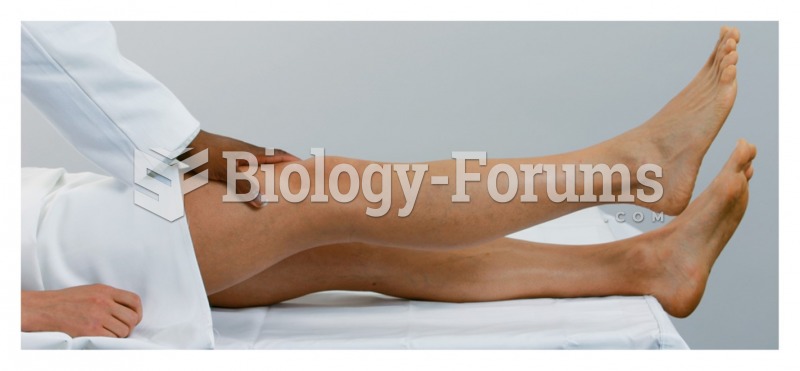|
|
|
The immune system needs 9.5 hours of sleep in total darkness to recharge completely.
To maintain good kidney function, you should drink at least 3 quarts of water daily. Water dilutes urine and helps prevent concentrations of salts and minerals that can lead to kidney stone formation. Chronic dehydration is a major contributor to the development of kidney stones.
The senior population grows every year. Seniors older than 65 years of age now comprise more than 13% of the total population. However, women outlive men. In the 85-and-over age group, there are only 45 men to every 100 women.
In inpatient settings, adverse drug events account for an estimated one in three of all hospital adverse events. They affect approximately 2 million hospital stays every year, and prolong hospital stays by between one and five days.
Ether was used widely for surgeries but became less popular because of its flammability and its tendency to cause vomiting. In England, it was quickly replaced by chloroform, but this agent caused many deaths and lost popularity.
 Sign on methanol pump shows that methyl alcohol is a poison and can cause skin irritation and other ...
Sign on methanol pump shows that methyl alcohol is a poison and can cause skin irritation and other ...
 Some column-mounted ignition switches act directly on the contact points, whereas others use a link ...
Some column-mounted ignition switches act directly on the contact points, whereas others use a link ...





